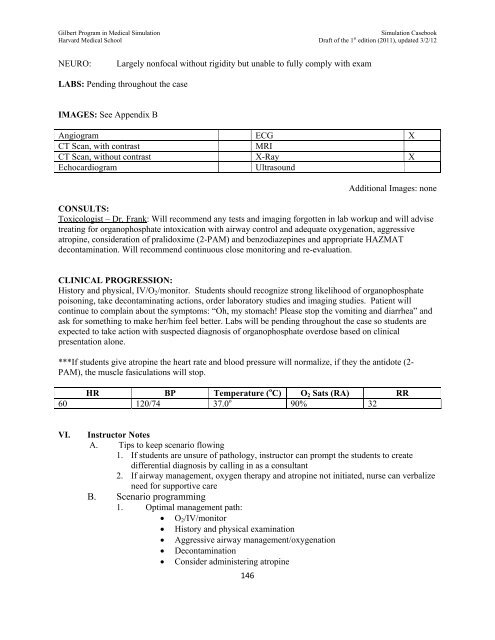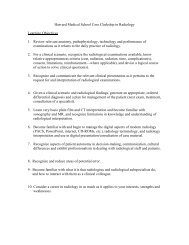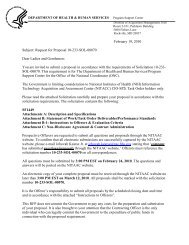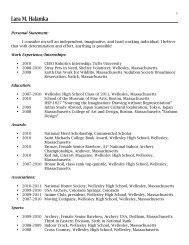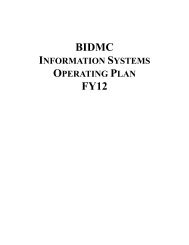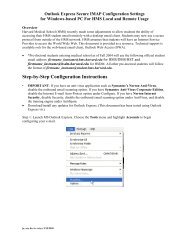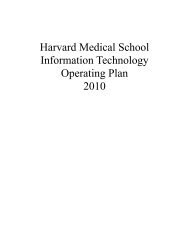SIMULATION CASEBOOK - MyCourses
SIMULATION CASEBOOK - MyCourses
SIMULATION CASEBOOK - MyCourses
You also want an ePaper? Increase the reach of your titles
YUMPU automatically turns print PDFs into web optimized ePapers that Google loves.
Gilbert Program in Medical Simulation<br />
Simulation Casebook<br />
Harvard Medical School Draft of the 1 st edition (2011), updated 3/2/12<br />
NEURO:<br />
Largely nonfocal without rigidity but unable to fully comply with exam<br />
LABS: Pending throughout the case<br />
IMAGES: See Appendix B<br />
Angiogram ECG X<br />
CT Scan, with contrast<br />
MRI<br />
CT Scan, without contrast X-Ray X<br />
Echocardiogram<br />
Ultrasound<br />
Additional Images: none<br />
CONSULTS:<br />
Toxicologist – Dr. Frank: Will recommend any tests and imaging forgotten in lab workup and will advise<br />
treating for organophosphate intoxication with airway control and adequate oxygenation, aggressive<br />
atropine, consideration of pralidoxime (2-PAM) and benzodiazepines and appropriate HAZMAT<br />
decontamination. Will recommend continuous close monitoring and re-evaluation.<br />
CLINICAL PROGRESSION:<br />
History and physical, IV/O 2 /monitor. Students should recognize strong likelihood of organophosphate<br />
poisoning, take decontaminating actions, order laboratory studies and imaging studies. Patient will<br />
continue to complain about the symptoms: “Oh, my stomach! Please stop the vomiting and diarrhea” and<br />
ask for something to make her/him feel better. Labs will be pending throughout the case so students are<br />
expected to take action with suspected diagnosis of organophosphate overdose based on clinical<br />
presentation alone.<br />
***If students give atropine the heart rate and blood pressure will normalize, if they the antidote (2-<br />
PAM), the muscle fasiculations will stop.<br />
HR BP Temperature ( o C) O 2 Sats (RA) RR<br />
60 120/74 37.0 o 90% 32<br />
VI.<br />
Instructor Notes<br />
A. Tips to keep scenario flowing<br />
1. If students are unsure of pathology, instructor can prompt the students to create<br />
differential diagnosis by calling in as a consultant<br />
2. If airway management, oxygen therapy and atropine not initiated, nurse can verbalize<br />
need for supportive care<br />
B. Scenario programming<br />
1. Optimal management path:<br />
O 2 /IV/monitor<br />
History and physical examination<br />
Aggressive airway management/oxygenation<br />
Decontamination<br />
Consider administering atropine<br />
146


